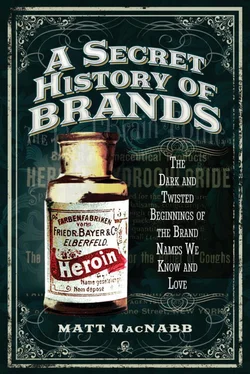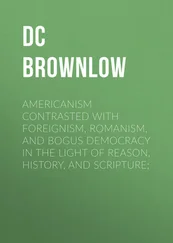Hugo F. Boss would die of a tooth abscess in his lifelong home of Metzingen on 9 August 1948, at the age of 63.
The Hugo Boss Company Apologises
The dark past of Hugo F. Boss plagued the fashion company that still brandishes his tainted name for years so, in an effort to expose the whole truth, the Hugo Boss company commissioned a historical study. The self-commissioned study was extremely revealing. It was made public by the Hugo Boss company in August 2011.
The company issued the following statement on their official website:
The study and its summary were produced in cooperation with the highly respected Gesellschaft für Unternehmensgeschichte – a German institution devoted to chronicling corporate histories – and its independent historians. The Group wishes to emphasize that it was not involved in the research or writing and that no influence whatsoever was brought to bear concerning the study’s form or content.
In the past HUGO BOSS AG has often been confronted by vague statements regarding its history. Hugo Ferdinand Boss established his workshop in 1924, as a consequence of which his company operated during the Third Reich and the Second World War. During this period the factory employed 140 forced labourers (the majority of them women) and 40 French prisoners of war. When the Group became aware of this fact, it made a contribution to the international fund set up to compensate former forced labourers.
Out of respect to everyone involved, the Group has published this new study with the aim of adding clarity and objectivity to the discussion. It also wishes to express its profound regret to those who suffered harm or hardship at the factory run by Hugo Ferdinand Boss under National Socialist rule.
Continuing Controversy
The Hugo Boss controversy continues to come to light from time to time. In fact, just a few years ago, shock-comedian Russell Brand was holding the microphone at the GQ Fashion Awards to accept the Oracle Award. The annual event, which was sponsored by the Hugo Boss company, included an audience of designers and celebrities. Following British Conservative politician Boris Johnson, a somewhat out-of-place character at the fashion awards, Brand made light of the historical origins that Hugo Boss shares with the Nazis:
Glad to grace the stage where Boris Johnson has just made light of the use of chemical weapons in Syria. Meaning that GQ can now stand for ‘Genocide Quips’. I mention that only to make the next comment a bit lighter, because if any of you know a little bit about history and fashion, you’ll know Hugo Boss made the uniforms for the Nazis. The Nazis did have flaws, but you know they did look fucking fantastic, lets face it. While they were killing people on the basis of their religion and sexuality. Genocide Quips are okay, no its okay its okay its already been sanctioned… its all cool.
One might assume that the countless headlines in newspapers and online after the event would highlight the lesser-known public fact that Hugo F. Boss was a member of the Nazi party, but instead there was a collective outrage over the nerve of Russell Brand for bringing up the tender subject of the company’s sketchy history: ‘Why Russell Brand’s Nazi barbs didn’t go over well with Hugo Boss’, ‘Why Russell Brand Made A Controversial Nazi Joke About Hugo Boss‘, ‘Russell Brand stuns GQ Men Of The Year audience with Nazi rant and salute’ and ‘Russell Brand “thrown out of GQ after-party” for offensive Nazi jibes about event sponsors Hugo Boss’.
Apparently the joke was so poorly received by the sponsors of the event that GQ editor Dylan Jones personally kicked Brand out of the after-show party. This isn’t terribly surprising, considering that the Hugo Boss company had donated a whopping £250,000 to throw the event. Russell Brand later posted the following recount of the event on his official Twitter account: GQ editor: ‘ What you did was very offensive to Hugo Boss .’ Me: ‘ What Hugo Boss did was very offensive to the Jews .’ #GQAwards #nazitailor
GQ Magazine wasn’t done with punishing Brand. They went on to erase all mention of him in their ‘Men of the Year’ issue, where Brand had been planned as a focal point. In expected fashion, Russell Brand tweeted the following in retort:
‘GQ cleansed me from their issue. That’s what they do when they don’t like something. I guess that’s why they dig the Nazis’.
Chapter Three
Henry Ford: The Jewish Conspiracy
There are several well-known car brands in our world today, but probably none that have the historical significance and reputation of the Ford Motor Company. Founder Henry Ford rose from an engineer to the sole manufacturer of the first mass-produced and affordable automobile. Today, the Ford brand lives on as an icon in the industry, but there was more than one side to the engineering genius that was Henry Ford. He held some very positive social views, that the common people should be able to afford their own automobile for example, and in many ways he was a generous family man and philanthropist. Unfortunately, he was also rabidly anti-Semitic, convinced that there was an international Jewish conspiracy that had the aim of taking down America. Ford’s views would become so radical and so highly circulated that they would even find their way as far as Hitler and his vicious Nazi Party in pre-Second World War Germany. Henry Ford is one of a handful of people from the past century who changed the world. The delicate balance of greatness and madness continue to define Ford’s legacy to this day.
The History of the Automobile
Since the days of prehistory, the primary modes of transportation had been some combination of horses pulling a carriage. The roots of this transport can be traced back to the Celts and the ancient Mesopotamians. It wasn’t until the industrial revolution that the tide began to finally turn. The end of the nineteenth century saw human inspiration at an all-time high and various kinds of motorised transportation began to emerge. The true automobile surge came in America after the turn of the twentieth century, when Henry Ford began to revolutionise the means and standards of production in his factories. This may be an important point in history, but it is also important to understand the long journey that the automobile took to get there, in order to appreciate the full impact that Ford made, not only on the marketplace, but on society itself.
The world has always been vast and wild and the question of how to best travel efficiently from one area to another has often been the subject of thought and innovation. Humans have been utilising horse and carriage combinations for thousands of years.
The use of horses was still the most efficient answer to the concern of travel, both local and long distances, until the eighteenth century. The old ways of travel may have sustained the world at the time, but using a horse-drawn carriage brought its own difficulties. A horse requires rest, food, water, husbandry, and care; to properly maintain a horse can be both expensive and time consuming. Naturally, when a more efficient mode of transportation was on the horizon, the days of the horse and buggy were numbered.
One of the early pioneers of the automobile industry hailed from Paris, France, in the commune Boulogne-Billancourt in the western suburbs. Louie Renault spent long hours working in his father’s tool shed, until one fateful Christmas Eve in 1898. That day, Louis Renault finished his automobile. He had saved money from his time in the military, so that he could purchase a De-Dion three-wheeler and modified it into a four-wheeler. The De-Dion was a motor-powered tricycle, but the addition of the fourth wheel drastically changed the landscape of motorised vehicles. The Renault was able to climb hills easily and could speed along efficiently, with no clanking belts or chains. Louie drove it to a Christmas party in order to show it off. The partygoers were quite impressed and they ordered a whopping twenty-four cars on the spot.
Читать дальше












